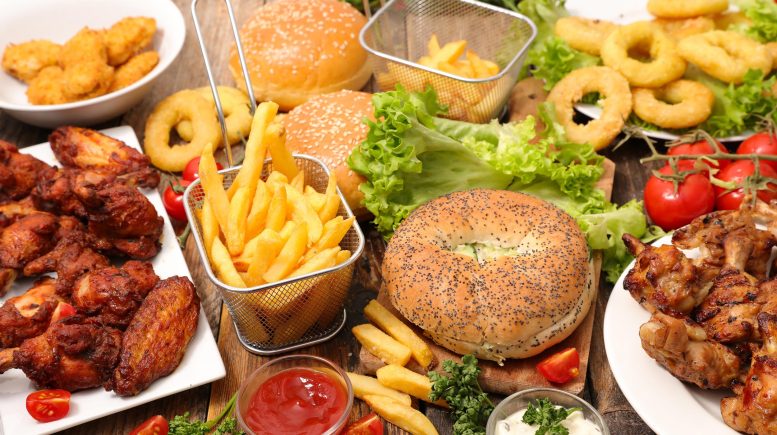
Researchers from the Garvan Institute of Medical Research in Sydney have discovered a link between stress and excessive eating, particularly of high-calorie comfort food, leading to weight gain. The study reveals that stress suppresses the brain’s natural response to satiety, specifically in the lateral habenula area of the brain, leading to continuous reward signals that promote the consumption of highly palatable food. Furthermore, they identified the molecule NPY, naturally produced by the brain in response to stress, as a key player in this process.
Scientists have found that stress coupled with a high-calorie diet increases the brain’s reward signals for food consumption, leading to weight gain. They attribute this to the molecule NPY, produced under stress, and the suppression of satiety response in the lateral habenula part of the brain. The study emphasizes maintaining a healthy diet in times of stress to prevent excessive eating.
When you’re stressed, a high-calorie snack may seem like a comforting go-to. But this combination has an unhealthy downside. According to Sydney scientists, stress combined with calorie-dense ‘comfort’ food creates changes in the brain that drive more eating, boost cravings for sweet, highly palatable food, and lead to excess weight gain.
A team from the Garvan Institute of Medical Research found that stress overrode the brain’s natural response to satiety, leading to non-stop reward signals that promote eating more highly palatable food. This occurred in a part of the brain called the lateral habenula, which when activated usually dampens these reward signals.
“Our findings reveal stress can override a natural brain response that diminishes the pleasure gained from eating – meaning the brain is continuously rewarded to eat,” says Professor Herzog, senior author of the study and Visiting Scientist at the Garvan Institute.
“We showed that chronic stress, combined with a high-calorie diet, can drive more and more food intake as well as a preference for sweet, highly palatable food, thereby promoting weight gain and obesity. This research highlights how crucial a healthy diet is during times of stress.”
The research was published in the journal Neuron.
From stressed brain to weight gain
While some people eat less during times of stress, most will eat more than usual and choose calorie-rich options high in sugar and fat.
To understand what drives these eating habits, the team investigated in mouse models how different areas in the brain responded to chronic stress under various diets.
“We discovered that an area known as the lateral habenula, which is normally involved in switching off the brain’s reward response, was active in mice on a short-term, high-fat diet to protect the animal from overeating. However, when mice were chronically stressed, this part of the brain remained silent – allowing the reward signals to stay active and encourage feeding for pleasure, no longer responding to satiety regulatory signals,” explains first author Dr. Kenny Chi Kin Ip from the Garvan Institute.
“We found that stressed mice on a high-fat diet gained twice as much weight as mice on the same diet that were not stressed.”
The researchers discovered that at the center of the weight gain was the molecule NPY, which the brain produces naturally in response to stress. When the researchers blocked NPY from activating brain cells in the lateral habenula in stressed mice on a high-fat diet, the mice consumed less comfort food, resulting in less weight gain.
Driving comfort eating
The researchers next performed a ‘sucralose preference test’ – allowing mice to choose to drink either water or water that had been artificially sweetened.
“Stressed mice on a high-fat diet consumed three times more sucralose than mice that were on a high-fat diet alone, suggesting that stress not only activates more reward when eating but specifically drives a craving for sweet, palatable food,” says Professor Herzog.
“Crucially, we did not see this preference for sweetened water in stressed mice that were on a regular diet.”
Stress overrides healthy energy balance
“In stressful situations, it’s easy to use a lot of energy and the feeling of reward can calm you down – this is when a boost of energy through food is useful. But when experienced over long periods of time, stress appears to change the equation, driving eating that is bad for the body long term,” says Professor Herzog.
The researchers say their findings identify stress as a critical regulator of eating habits that can override the brain’s natural ability to balance energy needs.
“This research emphasizes just how much stress can compromise a healthy energy metabolism,” says Professor Herzog. “It’s a reminder to avoid a stressful lifestyle, and crucially – if you are dealing with long-term stress – try to eat a healthy diet and lock away the junk food.”
Reference: “Critical role of lateral habenula circuits in the control of stress-induced palatable food consumption” by Chi Kin Ip, Jemma Rezitis, Yue Qi, Nikita Bajaj, Julia Koller, Aitak Farzi, Yan-Chuan Shi, Ramon Tasan, Lei Zhang and Herbert Herzog, 8 June 2023, Neuron.
DOI: 10.1016/j.neuron.2023.05.010
This research was supported by the National Health and Medical Research Council (project grant 1066809). Professor Herzog is a Conjoint Professor at St Vincent’s Clinical School, Faculty of Medicine and Health, UNSW Sydney. Dr. Kenny Chi Kin Ip is a Conjoint Lecturer at St Vincent’s Clinical School, Faculty of Medicine and Health, UNSW Sydney.


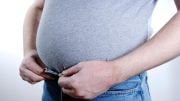


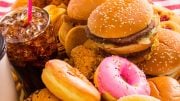
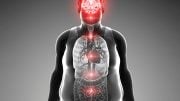
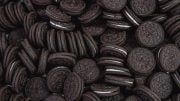
Be the first to comment on "Molecule NPY and Weight Gain: How Chronic Stress Drives the Brain To Crave Comfort Food"